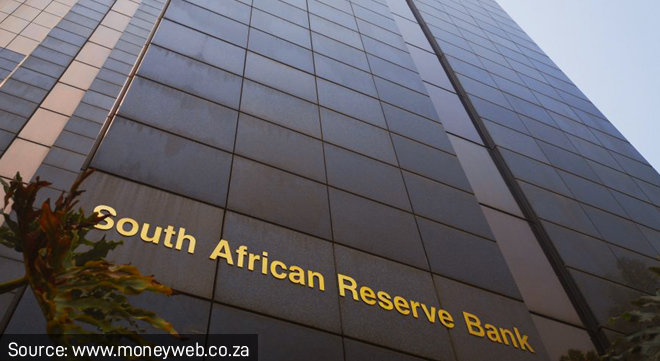The ANC has resolved to broaden the mandate of the South African Reserve Bank (Sarb) to promote employment in addition to its existing task of targeting inflation, according to reports by Bloomberg and News24.
“The mandate of the Reserve Bank has to be expanded to meet the needs of the economy,” Gwede Mantashe, the chairperson of the ANC, said in an interview with Bloomberg in Mangaung on 6 January following the conclusion of the party’s 55th national conference.
South Africa needs to consider central bank models in other countries “and study alternatives that we think will be suitable for our own situation”.
Mmamoloko Kubayi, the chairperson of the ANC’s economic transformation committee, told News24 that the Sarb should play a more significant role in alleviating poverty and support the economy through providing solutions to unemployment.
“The resolution was that the Reserve Bank mandate must be amended to include that of dealing with unemployment, and we reaffirmed the independence of the Reserve Bank and not to tamper with it,” Kubayi was quoted as saying.
She said the party’s about-turn on the nationalisation of the bank came after it deliberated and realised that “the costs to the fiscus would be unjustifiable”, News24 reported.
Although the party has taken a decision in principle for the change, more discussions were needed before proposals were submitted to lawmakers, Bloomberg reported Mantashe as saying.
Kubayi told Bloomberg that various options had to be explored to change the bank’s mandate, one of which was a constitutional amendment.
“It will be on government to ensure that the Reserve Bank mandate is amended to include employment,” she said. “It is government that will look at modalities.”
The ANC won’t be able to effect a constitutional amendment on its own. Amendments to the Constitution require the supporting vote of at least two-thirds of the members of the National Assembly. The ANC controls 58% of seats in the National Assembly.
Although the Economic Freedom Fighters agreed with the ANC on the need for the Sarb’s mandate to be changed, the governing party won’t make concessions to the opposition in exchange for their support to amend the Constitution, according to Mantashe, who is also the Minister of Mineral Resources and Energy.
“You have a proposal, you take it to Parliament, and you mobilise other parties, and if they want, they come. If they don’t want to, then they don’t,” Bloomberg quoted him as saying. “We are not going to rush for it because we are desperate.”
Commitment to preserving the bank’s independence
The Bloomberg report continues:
The ANC has tried to make changes at the Sarb before. It decided in 2017 that the government should take ownership of the privately owned bank, but the process, which requires a change to the Reserve Bank Act and an agreement on the price of shares, has stalled.
The central bank is seen by investors, business and ratings companies as one of few pillars of institutional strength in an economy hollowed out by corruption during former President Jacob Zuma’s rule. A 2017 proposal by now-suspended Public Protector Busisiwe Mkhwebane to change the bank’s constitutional mandate and curtail its independence sparked concern before it was blocked by the courts.
The ANC remains committed to preserving the bank’s independence and isn’t turning it into a scapegoat for the country’s economic woes, Kubayi said. “We are sitting in a crisis that says what are the tools, the options,” to respond to it now and in the future, she said.
Major emerging economies have considered taking a page from the likes of the US Federal Reserve to broaden their central banks’ remit by adding responsibilities beyond inflation. The Fed has a dual mandate of stable prices and maximum employment.
Indonesia’s parliament passed a law last month tasking the central bank to finance the budget in times of crisis, although an earlier proposal to explicitly include job creation and economic growth in its mandate was dropped from the new legislation.
In 2021, the Saudi central bank’s mandate was expanded to include supporting economic growth.
Should the ANC be unable to change the constitution or decide against doing so, Finance Minister Enoch Godongwana may seek to appease party members by stressing the need for flexibility in policy making to Reserve Bank Governor Lesetja Kganyago.



